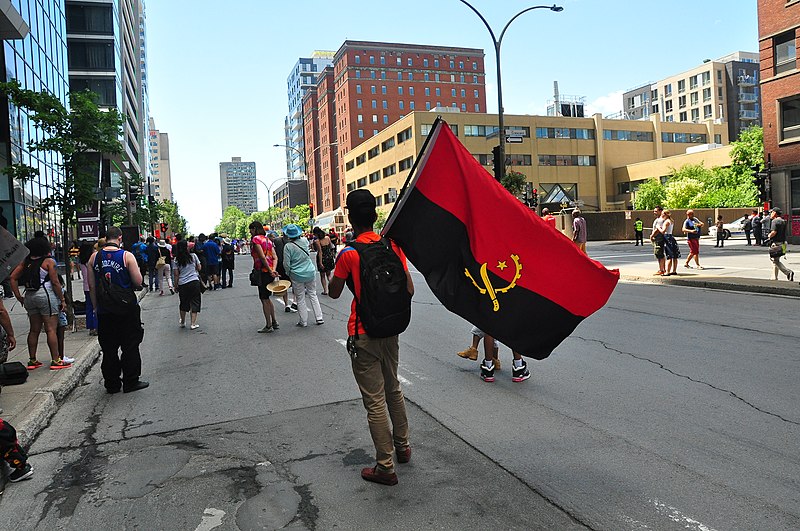(5 mins read)

Mass protests have erupted in Angola, Luanda against police brutality in the country. For decades the county has suffered at the hands of corruption and police brutality and during the pandemic things have gotten much worse. During protests on November 11th, Angola’s Independence Day, thousands of heavily armed police and plainclothes officers were deployed to the streets of Luanda ahead of an anti-government protest called by civil society groups to demand jobs and local elections in 2021. Angolan police used live bullets, teargas, and dogs to disperse the protestors, killing one protester. Police also severely beat the well-known activists- Nito Alves and Laurinda Goveia, who are both in critical condition, and arbitrarily arrested a third activist, Luaty Beirao.
Footage posted on social media shows people running through Luanda’s streets, seeking places to hide as police indiscriminately fired live bullets and teargas at them. Officers also beat protesters with batons, threw them inside police vans, and drove them away to unknown locations. Police also set up roadblocks and closed the main roads to the populous Cacuaco, Benfica, and Viana neighborhoods.
Social media videos have emerged showing the body of an unidentified man on the floor with blood coming from his head. Two activists said that at about 11 a.m. the police had fired live bullets to disperse protesters who gathered near the Congolese market and had shot the man. Hours later, a police spokesman confirmed to journalists that a man had been killed by a gunshot to his head, but declined to confirm whether the officers were responsible.
At least seven people between May and July 2020 have died at the hands of police brutality, according to a new investigation by Amnesty International and Angolan rights organization OMUNGA. The victims were all boys and young men, and the youngest victim was just 14 years old. The organizations believe the true death toll is likely to be much higher.
President João Lourenço’s was once hailed due to notable improvements in freedom of expression and peaceful assembly. But the situation dramatically changed in October, when the president, as part of measures to control the spread of Covid-19, banned all public gatherings of more than five people, just before a planned demonstration by the main opposition party, Unita was supposed to take place. Many saw the government’s new ruling as an excuse for heavy-handed policing and violent repression of peaceful protests.
This is not the first sight of public outcry as Angolan doctors’ Unions have also taken to the streets to denounce police brutality. Many Angolans are fed up with the situation and are demanding change.
Top Posts & Pages
- 5 cool places to visit in Guinea: Conakry
- The Top 5 Cultural and Historical countries in West Africa
- The Gambia - A 2024 Travel Guide
- Countries
- Equatorial Guinea - A 2024 Travel Guide
- Conakry, Guinea - Ultimate Guide
- Guinea - A 2024 Travel Guide
- Mauritania - A 2024 Travel Guide
- Senegal - A 2024 Travel Guide
- AdeAfrica Quiz - What's your dream destination ?
Have a story? Would you like to be a writer for our platform? If so, Contact us below
Weekly Blog Stats
- 19,401 Views
